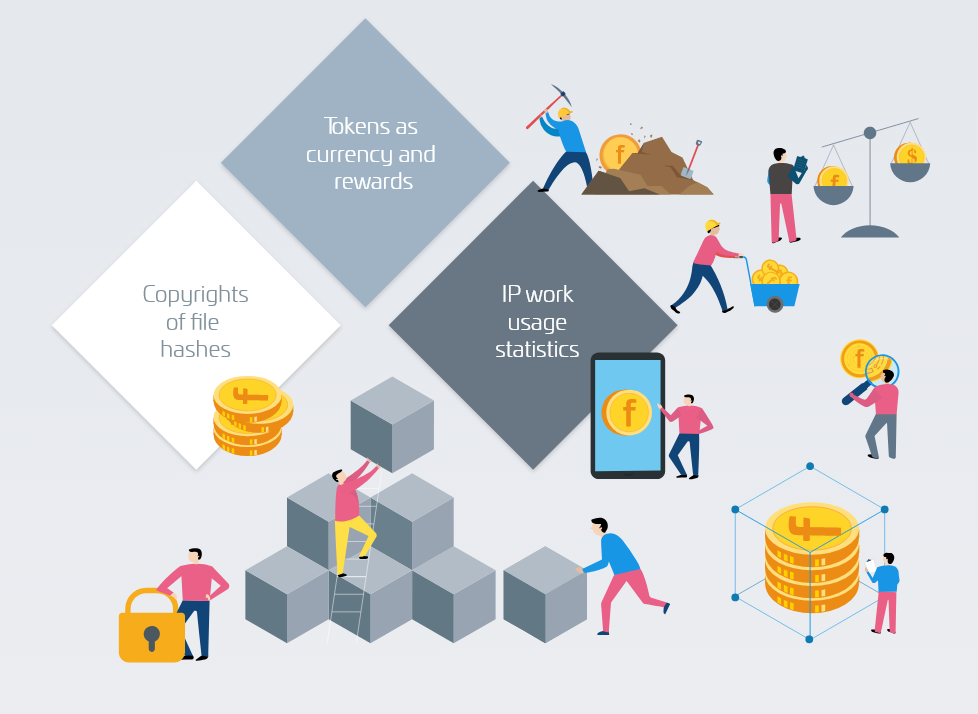It hasn’t been a good year for bitcoin, the most famous cryptocurrency. In the last 12 months, its price has dropped from a record high of 20 000 dollars to meager 6300 dollars. Lots of people lost their money. Lots of people got sad — or annoyed: you probably remember that one friend who couldn’t stop talking about bitcoins for a few months. Maybe you were that friend.
Most people immediately jump to cryptocurrency when hearing the word “blockchain”. But this is not only about bitcoin. While blockchain technology began in finance, it has since expanded to other fields, including healthcare, manufacturing and data storage and has now been named one of the most promising technology trends by leading tech companies, such as Accenture and Gartner. In data storage, it provides the backbone for the so-called decentralized storage systems.
Blockchain technology in data storage
Blockchain consists of thousands of ledgers or documents saved across a connected network of computers. It is designed so that the documents are regularly updated and available at the same time. Decentralized storage systems work in a similar way: information is stored in a network of nodes or computers. The database of files isn’t stored in one centre. Instead, they are located on thousands of interconnected computers.
This provides several advantages. A centralized storage system is more prone to attacks and hacks from outside forces, and centralized service providers design their privacy policies in a way that allows access to personal files, posing an inside threat to your privacy. This is not possible with decentralized systems, as the files are saved on a vast network of computers. If one node is attacked, the whole system keeps working uninterrupted. The use of peer-to-peer (P2P) network and blockchain technology can also increase the speed available to user, as it is not necessary for all users to access one storage centre, usually located far away.
While pure blockchain models are often volatile and the technology is not mature enough for large scale use, hybrid P2P technologies have experienced many developments in the last years. These technologies combine the reliability of centralized networks and the scalability of decentralized ones. This allows fast download speed, unlimited traffic, participation of thousands of simultaneous users, no downtime in case of traffic spikes, reduced service maintenance fees, and the possibility of independent file exchange, meaning more privacy for the end user.
Community-powered library
Currently, Files.fm provides two possible download options: traditional download from centralized server and beta version for downloading from P2P network using adapted torrent framework. In our community-powered library (read more here), users will be able to invest their computer’s free storage and network bandwidth to help expand the P2P network. The library will decide when to store a file on the user’s computer depending on the client’s performance — available storage, network, geographic location and other aspects. The users will be rewarded with tokens allowing them to buy private storage spaces or useful copyrighted files from the library.

Blockchain storage is immutable and difficult to search through, so Files.fm Library will store the files on a P2P network and use blockchain technology for the elements that would be improved by adding a tamper-free transparent ledger: intellectual property rights storage, usage statistics and rewards system.
Furthermore, the library will incorporate independent and direct payment system between its users, using the same blockchain technology.
Find more about the library:
Website: https://files.fm/library
Telegram: https://t.me/filesfm
Bitcointalk ANN thread: https://bitcointalk.org/index.php?topic=4949343
Twitter: https://twitter.com/files_fm
Facebook: https://www.facebook.com/Filesfm/
Reddit: https://www.reddit.com/r/filesfm/
Youtube: https://www.youtube.com/channel/UCz6X-6_f1kveo_TfcGuHRZA
